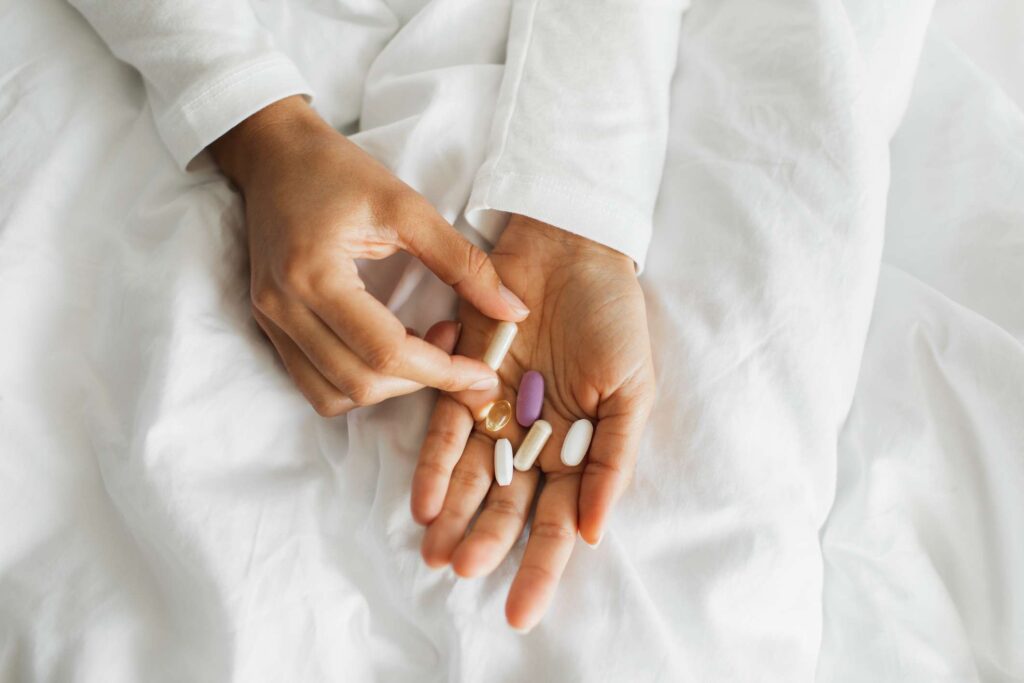Iron and vitamin D are two nutrients that play essential roles in health, such as oxygen transportation and calcium absorption.
Many people supplement with iron and vitamin D in order to keep their levels optimal, but can you safely take both of these nutrients at the same time?
Here’s what science says about taking iron and vitamin D together.
Yes, you can safely take iron and vitamin D together. Unlike some nutrients that interfere with each other’s absorption, vitamin D and iron don’t compete for absorption in the body.
That means you can take both at the same time without reducing their effectiveness or risking harmful interactions.
Keep in mind that this advice applies to single-nutrient supplements, not multivitamins that contain either of these nutrients. Multivitamins may contain other nutrients, like calcium, which competes for absorption with iron, or vitamin E, which competes for absorption with vitamin D.
Iron is a mineral that’s needed for making hemoglobin, the protein in red blood cells responsible for carrying oxygen from your lungs to the rest of your body.
In addition to being necessary for hemoglobin production, iron plays critical roles in growth, energy production, hormone synthesis, and neurological development.
Vitamin D is a fat-soluble vitamin that’s necessary for bone health, muscle and immune function, and the regulation of inflammation. Vitamin D helps your body absorb calcium, which is needed for strong bones, nerve and muscle function, hormone secretion, and blood vessel dilation.
Both nutrients are vital for health, which is why deficiencies in either can negatively impact your body.
If your levels of vitamin D or iron are low, or if you have an issue absorbing either of these nutrients from food, your healthcare provider will likely recommend supplementation.
Unlike some nutrients, iron and vitamin D don’t directly influence each other’s absorption in the body. However, some studies suggest that low levels of either iron or vitamin D may negatively affect the levels or function of the other.
For example, people with low vitamin D levels are at a higher risk of iron deficiency anemia. Low vitamin D levels negatively impact red blood cell production and may interfere with iron absorption, causing low iron levels.
Low vitamin D levels can suppress the production of a hormone called hepcidin, which regulates iron absorption and iron concentration in the blood.
Low iron stores may also contribute to low vitamin D levels by reducing the activity of iron-containing enzymes that activate vitamin D.
This highlights the importance of monitoring vitamin D and iron levels, as low levels of one may negatively affect the other.
Several studies have explored the relationship between iron and vitamin D.
A 2025 review that included nearly 11,000 people found that iron deficiency was more common in those with vitamin D deficiency and that average levels of iron markers such as hemoglobin, ferritin, and red blood cell counts were consistently lower in people with vitamin D deficiency.
A 2018 study found that female athletes who had iron deficiency were significantly more likely to have vitamin D deficiency.
These findings suggest that maintaining healthy stores of these nutrients with iron and vitamin D supplementation may be complementary, especially for people deficient in either nutrient.
To get the most benefit, consider these tips:
- For optimal absorption, it’s best to take iron supplements on an empty stomach at least 30 minutes before eating. However, if you feel nauseated after taking your iron supplement, you can take it with a small snack.
- Vitamin D is a fat-soluble nutrient, meaning it’s best absorbed with a meal or snack containing fat.
- Avoid taking iron-containing supplements with calcium-rich foods or supplements containing calcium, as calcium reduces iron absorption.
- Take vitamin D separately from some fat-soluble nutrients, like vitamin E, which competes for absorption with vitamin D.
Though you can take vitamin D and iron together, it’s best to avoid taking iron with supplements that contain multiple nutrients, as some multivitamins that contain vitamin D also contain minerals that can reduce iron absorption.
If you’re considering taking iron and vitamin D together, it’s always best to consult with a healthcare provider. This is especially important if you have low levels of iron or vitamin D.
Some people may struggle to absorb iron from food or supplements and might require iron infusions to restore healthy levels.
Additionally, if you’re severely low in vitamin D, you may require large doses of supplemental vitamin D or vitamin D injections.
If you think you may be low in vitamin D or iron, your healthcare provider can recommend lab tests to determine whether you’re deficient and recommend supplementation if necessary.
Iron and vitamin D are both essential nutrients that support overall health.
You can safely take vitamin D and iron supplements together, but you should avoid combining them with supplements that contain nutrients that may reduce their absorption.
It’s always best to discuss supplements with a healthcare provider to ensure you’re meeting your nutrient needs safely.


